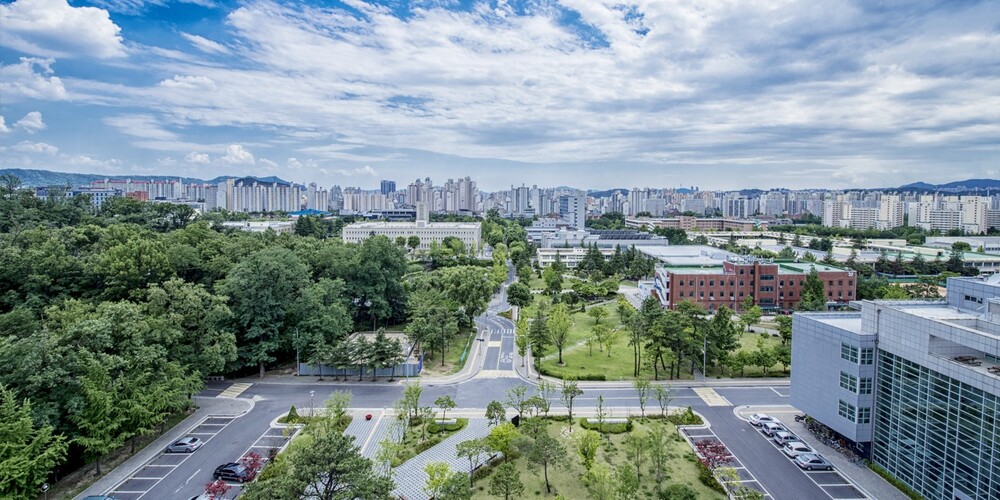In the journal, Higher Education, Jung Cheol Shin's 2012 article explores how Western university ideas, Confucian tradition, and economic development shape higher education in Korea. Specifically, the article provides a comprehensive framework for analyzing the intricate relationship between these three factors, which influence the development of Korean universities. This analysis helps understand the structure of Korean universities and how higher education systems develop in other countries. Furthermore, the framework applies to analyzing the development of other aspects of Korean society and its impact on higher education.
The Role of Confucian Tradition in Shaping Korean Higher Education
 Confucian tradition has had a significant impact on the development of higher education in Korea. This influence is reflected in various aspects of the Korean higher education system, including:
Confucian tradition has had a significant impact on the development of higher education in Korea. This influence is reflected in various aspects of the Korean higher education system, including:
- Emphasis on learning, scholarship, and knowledge acquisition, which has been central to Confucianism.
- Respect for elders and authority figures, which has contributed to the hierarchical structure of Korean universities, is evident in the seniority-based system of academic promotion and tenure.
- Relationship between students and teachers, which is influenced by the importance of respect for teachers and their expertise in Confucianism.
- Values and goals of Korean higher education, which balance the emphasis on knowledge acquisition and scholarly pursuits with practical skills and vocational training, reflect the Confucian ideal of balancing theory and practice.
Model University Ideas in Korean Higher Education
Western Model University Ideas in Korean Higher Education
Western model university ideas, particularly those from Germany and the United States, have had a significant impact on the development of Korean higher education. During the early 20th century, the Japanese colonial government introduced the German university model, which played a crucial role in shaping Korean universities. After World War II, the United States university model became the dominant influence on Korean higher education, with Korean universities embracing American ideas about liberal arts education, scientific research, and interdisciplinary study.
The Unique Approach to Korean Higher Education
Korean universities have integrated Western ideas with Confucian tradition, resulting in a unique approach to higher education. This approach has allowed Korean universities to adapt to Western models of academic research and teaching while retaining traditional values of respect for authority and hierarchy.
The Western University Model in Korean Higher Education
The adoption of the Western university model has influenced the structure and governance of Korean universities. Korean higher education has embraced features of the Western university model. They are including research universities, the tenure system, and academic freedom. The integration of Western ideas with Confucian tradition has resulted in a distinctive higher education system in Korea.
Economic Development and Higher Education in Korea
Higher Education in Korea's Knowledge-Based Economy
The growth of Korean higher education has been closely linked to the rapid growth of the Korean economy. The Korean government has implemented various policies and initiatives to promote the development of higher education as a means of fostering economic growth.
Policies for Higher Education and Economic Growth in Korea
Higher education in Korea has played a key role in the development of the country's knowledge-based economy. Universities have been instrumental in producing skilled workers, promoting technological innovation, and fostering entrepreneurship.
Access to Higher Education in Korea: Inequality and Diversity
The Korean government has also implemented various policies to encourage greater participation in higher education, particularly for underprivileged groups. This has included providing financial support for low-income students, expanding access to higher education in rural areas, and promoting diversity in higher education.
Complexities of Higher Education Development in Korea
The close alignment between economic development and higher education in Korea suggests that higher education development cannot be solely explained by cultural or historical factors. Rather, it is a complex interplay between sociocultural tradition, modern university ideas, and economic development that shapes the development of higher education in Korea.
Interconnection of Sociocultural Tradition, Modern University Ideas, and Economic Development

Confucianism and Higher Education Development in Korea
The Confucian tradition has had a significant impact on the development of higher education in Korea. Confucianism emphasizes the importance of education. This has influenced the Korean government's investment in higher education. Moreover, the Korean education system has incorporated Confucian values, including filial piety, respect for authority, and a strong work ethic.
Modern University Ideas in Korea: Sociocultural Influences
Sociocultural factors have influenced the adoption of modern university ideas in Korea. During the Japanese occupation period in Korea, the Japanese colonial government established the German university model. Following World War II, the US university model was introduced to Korea, which has since been modified and adapted to meet the needs of Korean society.
Evolution of Higher Education in Korea: German to American Model
The evolution of higher education models in Korea has been shaped by historical events and sociocultural factors. The Japanese colonial government introduced the German university model to Korea, which emphasized research and specialized education. Following World War II and the Korean War, the US university model was introduced, which emphasized undergraduate education and a broad-based curriculum.
Economic Development and Higher Education Growth in Korea
The growth of higher education in Korea has been strongly influenced by its economic development. The government has invested heavily in higher education as a means of promoting economic growth. This has resulted in a critical contribution of higher education to the production of skilled workers, the promotion of technological innovation, and the fostering of entrepreneurship in the country.
Higher Education's Role in Labor, Innovation, and Entrepreneurship in Korea
Higher education has played a critical role in Korea's knowledge-based economy. Universities have been instrumental in producing skilled workers, promoting technological innovation, and fostering entrepreneurship. These efforts have helped Korea establish itself as a global leader in technology and innovation.
How Korea's Higher Education System Succeeded Through Government Investment and Cultural Interplay
To comprehend the development of higher education in Korea and other countries, it is necessary to consider three factors.
- Firstly, sociocultural tradition has played a significant role in shaping the growth of higher education.
- Secondly, modern university ideas have also influenced the development of higher education.
- Finally, economic development has been a crucial driver of higher education growth. Korea's higher education system is a great example of how significant government investment in education can lead to economic growth.
This success story showcases the interplay between Confucian tradition, Western university ideas, and economic development. By recognizing the intricate relationship between these factors, we can analyze and apply this framework to the growth of higher education in other countries. Thus, understanding the complex dynamics between culture, history, and economic development is critical for achieving success in higher education.
The Interplay of Tradition, Ideas, and Development in Higher Education: Lessons from Korea for Vietnam
 The interplay between sociocultural tradition, modern university ideas, and economic development is a crucial aspect of higher education growth not only in Korea but also in other countries. As Studystake aims to provide access to quality education globally, understanding the complex dynamics between these factors is essential. By recognizing the significance of sociocultural tradition, modern university ideas, and economic development, Studystake can develop programs and initiatives that cater to the unique needs of students from diverse cultural backgrounds. Vietnam, in particular, can learn from Korea's successful investment in education to promote economic growth and use this model to shape its own higher education system. Credit Source: "Higher education development in Korea: Western university ideas, Confucian tradition, and economic development". By Jung Cheol Shin. Published in the journal Higher Education, volume 64, issue 1, pages 59-72 in July 2012. Published by: Springer.
The interplay between sociocultural tradition, modern university ideas, and economic development is a crucial aspect of higher education growth not only in Korea but also in other countries. As Studystake aims to provide access to quality education globally, understanding the complex dynamics between these factors is essential. By recognizing the significance of sociocultural tradition, modern university ideas, and economic development, Studystake can develop programs and initiatives that cater to the unique needs of students from diverse cultural backgrounds. Vietnam, in particular, can learn from Korea's successful investment in education to promote economic growth and use this model to shape its own higher education system. Credit Source: "Higher education development in Korea: Western university ideas, Confucian tradition, and economic development". By Jung Cheol Shin. Published in the journal Higher Education, volume 64, issue 1, pages 59-72 in July 2012. Published by: Springer.